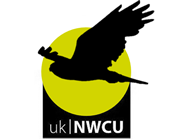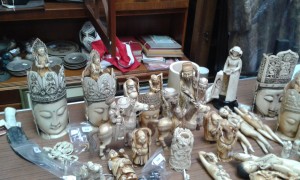During a recent visit by Devon and Cornwall Police and National Wildlife Crime Unit, a Cornish auction house voluntarily surrendered a collection of carved elephant ivory. They had come into possession of the collection following the death of its previous owner. However the auctioneers decided it would not be right to put the pieces up for auction, because they could not be sure of the age or provenance of the ivory. They could not be certain that the some of ivory pieces were not modern, but treated in a way to given them an antique look. .
The sale and commercial use of elephant ivory is prohibited under the provisions of the Control of Trade in Endangered Species (Enforcement) Regulations 1997. However there are certain exemptions, one of which relates to the sale of ‘antique’ ivory, which means that elephant ivory that was significantly altered from its raw state for ‘jewellery, adornment, musical instrument, art or utility’. To meet the criteria for the exemption, the ‘working’, which in this case was carving, has to have taken place prior to 3rd March 1947.
The auction house did not want to risk breaching the law and took the responsible decision to voluntarily hand the collection to the Police. A spokes person for the Police and NWCU said, “The potential value of this collection was not insignificant. It is reassuring to see this responsible trader not wanting to profit before breaking the law.”
The maximum sentence for the prohibited sale of elephant ivory is 5 years.





